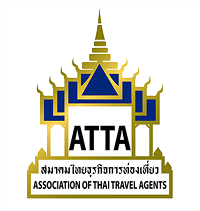Thailand Tourism Tax 2025: Reintroduction and Industry Impact
As the new Tourism Minister of Thailand aims to revive the long-discussed 300-baht tourism tax, the country’s tourism industry stands at a crucial juncture. The decision to shelve the tax during the previous administration led by Prime Minister Srettha Thavisin sparked debates among policymakers and stakeholders.
The new move promises to generate revenue for infrastructure, safety, and attractions, while aiming to stimulate tourism revenue to at least 3 trillion baht this year.
For travelers planning their trips, you can book tours, transfers, and experiences instantly online via TycoonDMC.
Introduction to the Tourism Tax Policy
The tourism tax is a small fee imposed on visitors entering Thailand. It was first approved by the cabinet in 2022 but was never officially published in the Royal Gazette. The tax is designed to fund tourism development, infrastructure, and ensure visitor safety.
-
Fee by air arrivals: 300 baht
-
Fee by sea/land arrivals: 150 baht
Historical Context: Previous Administration's Decision
The previous administration chose to shelve the tax, citing readiness concerns and potential impacts on visitor numbers. While tourism revenue was temporarily unaffected, delays in infrastructure investment and service enhancements were notable.
Factors Leading to Shelving the Tourism Tax
-
System readiness issues
-
Concerns about visitor deterrence
-
Need for stakeholder alignment
Impact of Shelving on Tourism Revenue
Without the tax, planned developments in tourism infrastructure were delayed, affecting service upgrades, airport facilities, and cultural attractions.
Role of the New Tourism Minister
Tourism Minister Sorawong Thienthong has pledged to implement the tax while ensuring it benefits the tourism sector. The plan is to collect fees effectively without discouraging visitors.
Minister’s Vision for Reinstatement
-
Fund infrastructure improvements
-
Enhance tourist safety
-
Upgrade attractions and services
Strategies for Implementation
-
Gradual rollout for transparency
-
Communication with stakeholders
-
Monitoring and evaluation systems
Impact on the Tourism Industry
Projected Revenue
The 300-baht tourism tax is expected to provide a stable revenue stream to fund infrastructure, conservation, and tourism development projects.
Benefits for Tourism Services
Revenue from the tax can lead to:
-
Improved transport networks
-
Upgraded accommodations
-
Enhanced tourist attractions
-
Better overall visitor experiences
Challenges and Controversies
Resistance from Tourism Businesses
Some operators fear the tax may reduce competitiveness compared to neighboring countries and affect visitor numbers.
Concerns from Tourists
Travelers have raised questions about:
-
The transparency of tax allocation
-
Additional costs on budget trips
-
Clear communication of tax usage
Future Prospects
Long-Term Sustainability
The tourism tax can provide a consistent revenue source to support sustainable tourism growth, infrastructure, and environmental preservation.
Enhancing Tourism Facilities
With proper implementation, Thailand can offer improved services, transport, and attractions, boosting visitor satisfaction.
Stakeholder Reactions
Government Communication
Authorities are actively engaging stakeholders, explaining benefits, and addressing concerns to ensure smooth implementation.
Public Opinion
Mixed reactions from the public emphasize the need for clear communication and transparency to gain support.
FAQ: Thailand Tourism Tax 2025
Q1: How much is the tourism tax?
-
300 baht for air arrivals, 150 baht for land/sea arrivals.
Q2: Who will benefit from this tax?
-
Revenue will fund infrastructure, safety, attractions, and tourism development.
Q3: When will the tax start?
-
The start date is under review; the ministry is assessing system readiness.
Q4: Will the tax affect travel plans?
-
Minimal impact; fees are small relative to overall trip costs.
Q5: Can I plan tours while considering the tax?
-
Yes, you can book all your tours and transfers online via TycoonDMC seamlessly.
With the 300-baht tourism tax reintroduction, Thailand’s tourism sector is set for transformation, balancing revenue generation with sustainable development and improved services for travelers.




